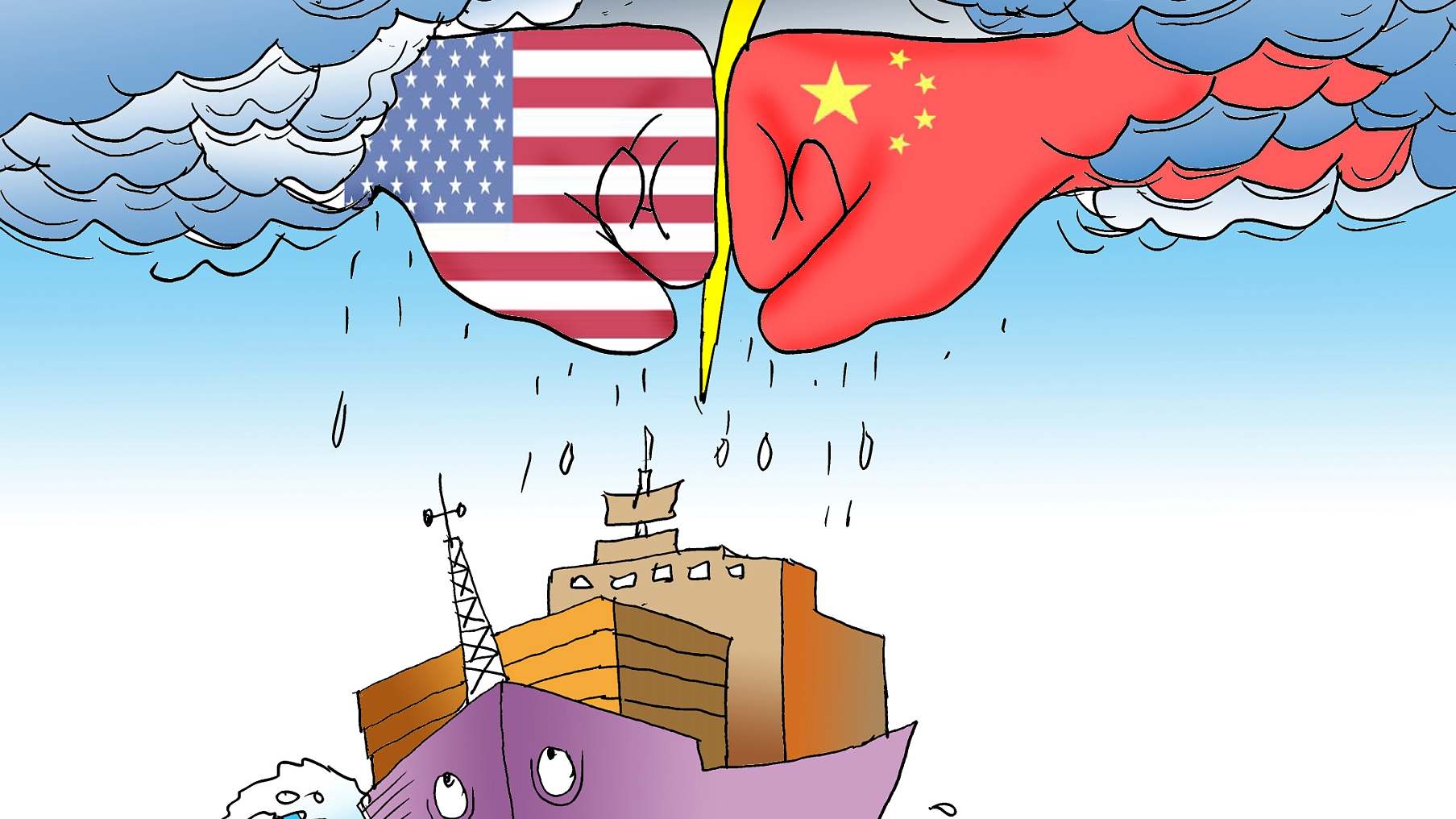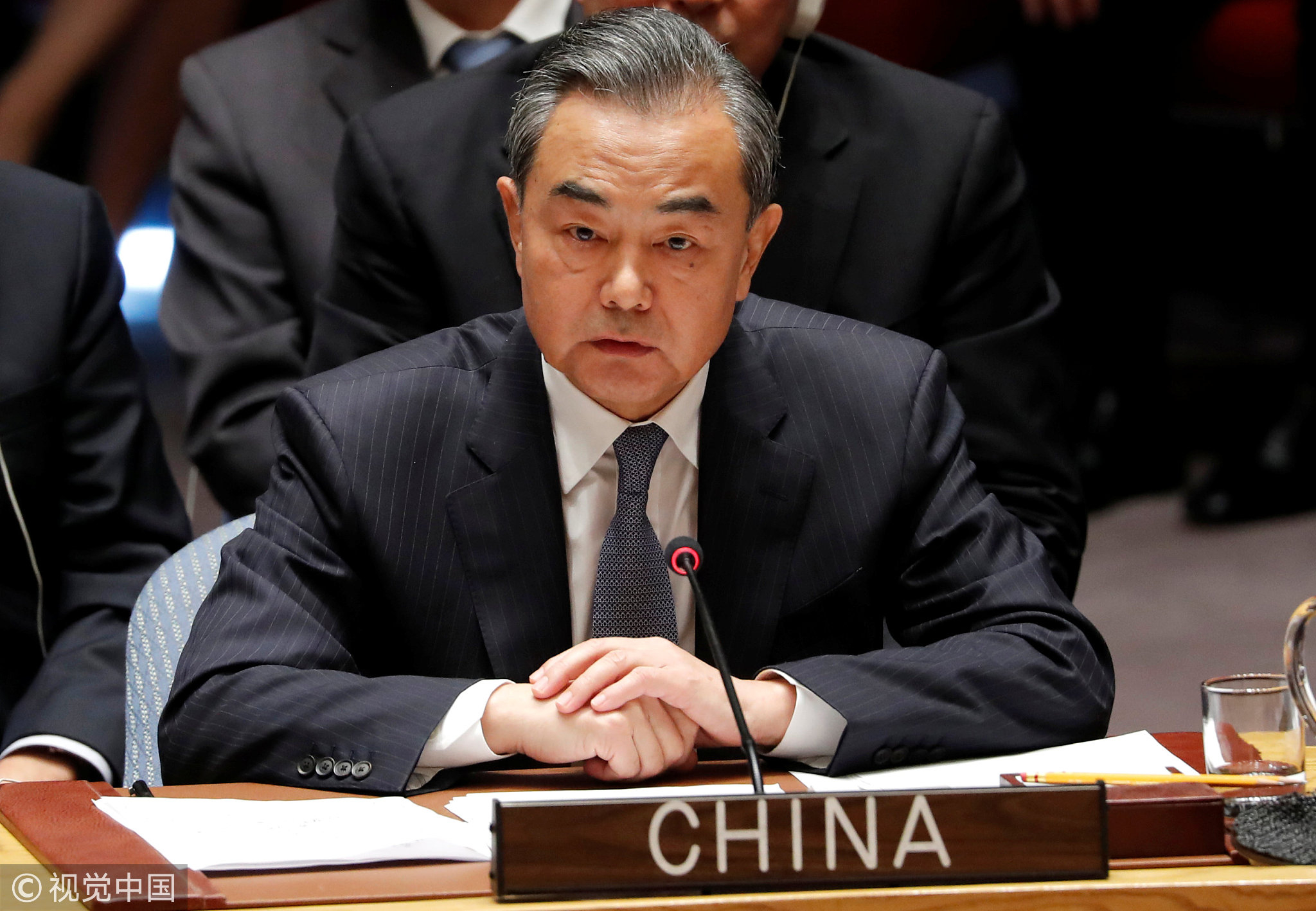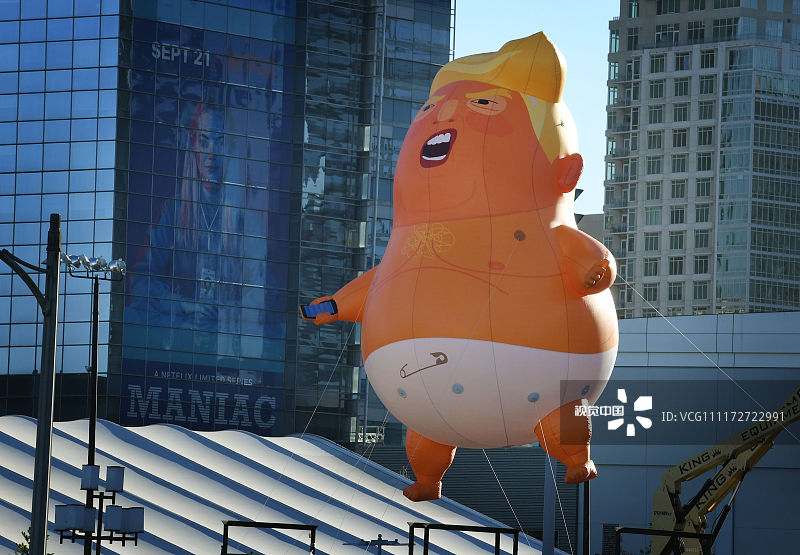
Opinions
12:09, 22-Oct-2018
Opinion: Are China and the US slipping into a real war?
Updated
11:17, 25-Oct-2018
Rick Dunham

Editor's Note: Rick Dunham is co-director of the Global Business Journalism program at Tsinghua University in Beijing. The article reflects the author's opinions, and not necessarily the views of CGTN.
The headlines are ominous. “China, US could slip into nuclear war,” declared the US news website Axios on October 17. The experts are pessimistic.
The risk of a nuclear confrontation is “higher than most policymakers and analysts think,” Caitlin Talmadge, an associate professor at Georgetown University told the American magazine Foreign Affairs.
War? Really?
The threat of confrontation between the world's two largest economic powers may or may not be real, but the words certainly are. From opinion writers at The New York Times to lawmakers on the Potomac, a deep chill has descended across the US.
If not as cold as the depths of the Cold War, the language is frostier than at any time since Richard Nixon thawed US-China relations with his historic visit to Beijing in 1972.
“US-China tensions are high at the moment on many fronts,” Republican Representative Chris Smith said at a recent press conference. Those tensions are reflected in global media coverage of China. Since US President Donald Trump imposed the first round of tariffs in the spring of 2018, the global coverage of China has increased in volume and its tone has been largely critical.
The White House has helped to shape the media agenda by unleashing a withering series of attacks that received wide coverage in the US and around the world. One of the harshest was US Vice President Mike Pence's October 4 speech at the Hudson Institute think tank.

China's Foreign Minister Wang Yi refutes Washington's allegation that China is intervening into US elections at the United Nations General Assembly in New York, September 26, 2018. /VCG Photo
China's Foreign Minister Wang Yi refutes Washington's allegation that China is intervening into US elections at the United Nations General Assembly in New York, September 26, 2018. /VCG Photo
Unveiling Trump's “new approach to China,” Pence delivered a comprehensive condemnation of Chinese policies including trade, investment rules, protection of intellectual property, Made in China 2025, the Belt and Road Initiative, human rights, territorial disputes, media and education.
The chorus of American criticism of China, sometimes muted during the past two decades of economic engagement, spans the ideological spectrum, from far left Democrats like Senator Elizabeth Warren to right-wing Republicans like Senator Ted Cruz.
US news outlets, including some frequent Trump critics, have found common cause with the US administration's attacks on China. A New York Times editorial on September 18 accused the Chinese government of “ruthless practices.” The Washington Post editorial board on September 17 labeled Chinese actions an “Orwellian model of repression.”
The Chinese Foreign Ministry has reacted sharply to such criticisms. “It has been nearly three decades since the Cold War ended, but certain persons in the US seem still obsessed with the monologue of seeking rivals and even making enemies,” ministry spokesperson Hua Chunying said in August.

The 'Baby Trump' balloon flies over the Convention Center as it makes first West Coast appearance during the lead up to the 4th annual Politicon, in Los Angeles, California on October 19, 2018. /VCG Photo
The 'Baby Trump' balloon flies over the Convention Center as it makes first West Coast appearance during the lead up to the 4th annual Politicon, in Los Angeles, California on October 19, 2018. /VCG Photo
Americans should solve their own problems “instead of poking their noses in other countries' affairs and pretending to be a judge of human rights,” Hua said at another briefing.
International media coverage has focused extensively on the roles of China and the US in a rapidly changing global economy amid Trump's attempts to disrupt the global economic order. Some Chinese analysts increasingly see the White House attacks as part of a Western plan to contain China's rise.
Outside the US, Western media organizations are trying to put the superpower tensions into perspective. The UK's Guardian wrote on October 17 that Washington has “significantly ramped up its bellicose rhetoric portraying China as a dangerous adversary.” Chinese media has remained “cautious” thus far, the newspaper said, but the government has responded to what it sees as provocations.
“Chinese officials have accused Washington of starting a new Cold War,” The Guardian concluded, “but the jostling between the two powers has already shown its potential to turn hot through accident or miscalculation if action is not taken to defuse tensions.”
(If you want to contribute and have a specific expertise, please contact us at opinions@cgtn.com.)

SITEMAP
Copyright © 2018 CGTN. Beijing ICP prepared NO.16065310-3
Copyright © 2018 CGTN. Beijing ICP prepared NO.16065310-3